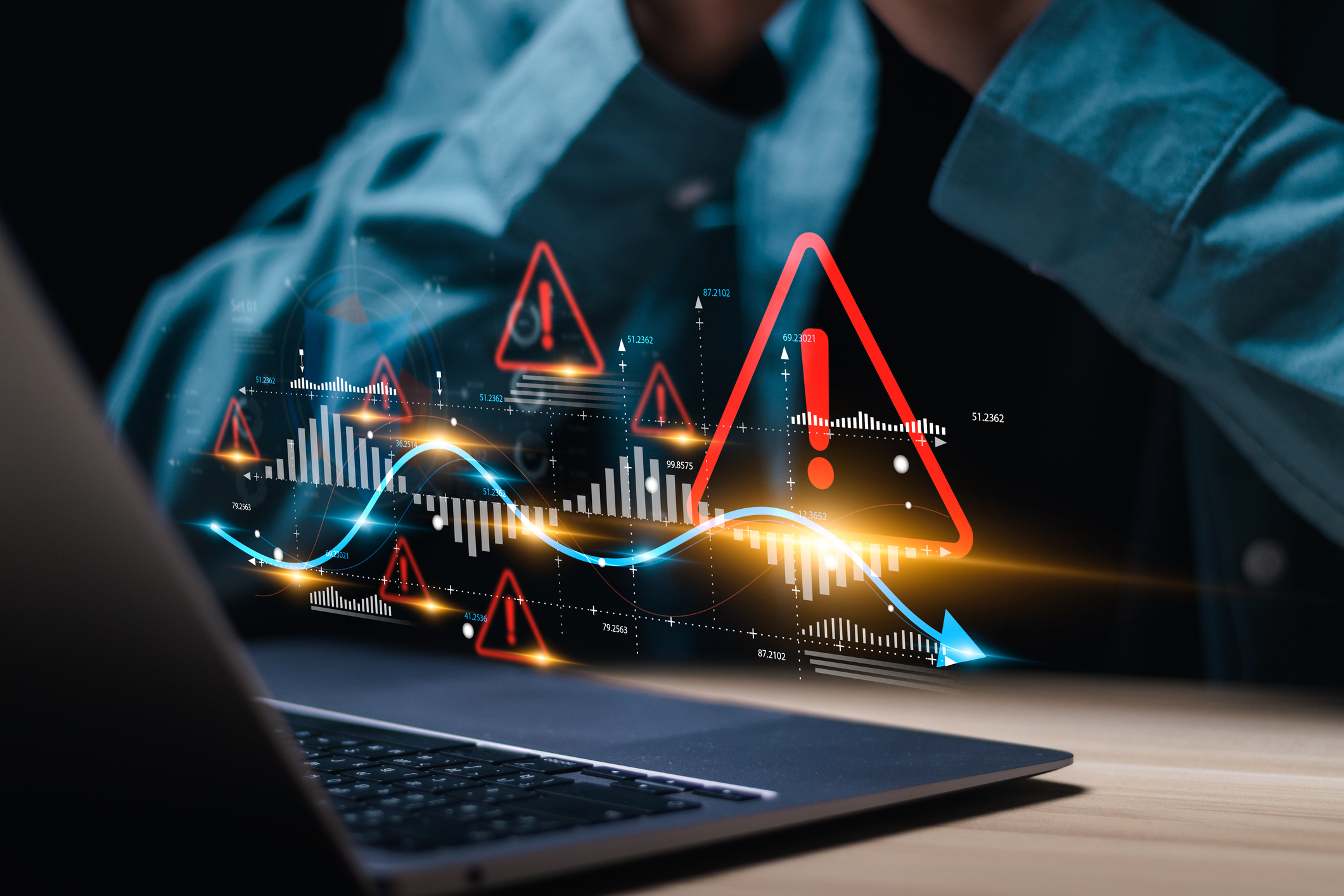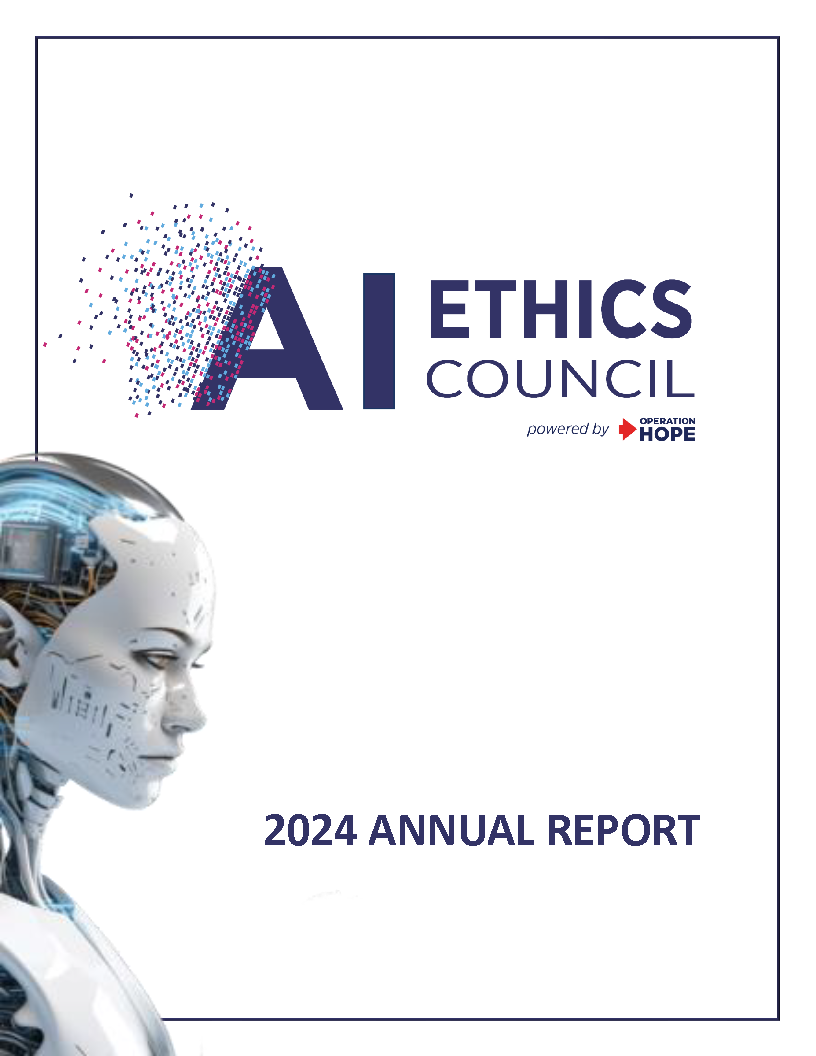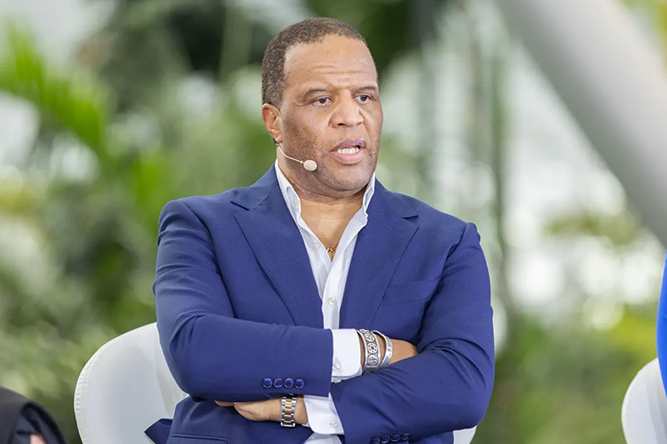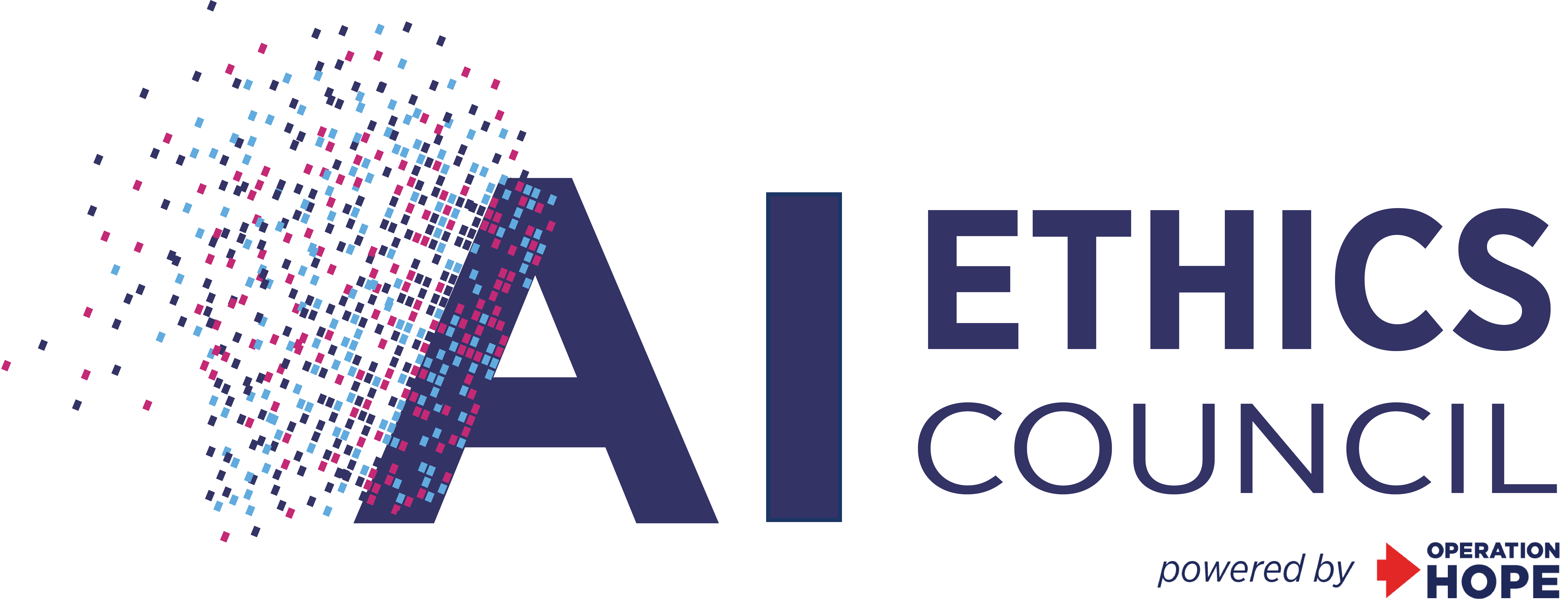Background and Vision
Digital pioneer Sam Altman, CEO and Co-founder of OpenAI, shares concerns about bias and discrimination in artificial intelligence (AI), yet also believes AI will overwhelmingly and positively impact society and that AI will create new economic opportunities for people of color and other underserved communities. OpenAI was founded with a mission to ensure that artificial general intelligence benefits all of humanity. To this end, Altman embarked upon an international listening tour of sorts. Following the tour, Altman accepted an invitation from the White House to meet for a roundtable discussion on AI ethics. This meeting sparked a dialogue between Altman and entrepreneur and thought leader John Hope Bryant, Founder, Chair and CEO of Operation HOPE. Soon after, Bryant partnered with Altman on his very first tour stop – befittingly, Clark Atlanta University, a Historically Black College and University (HBCU) in Atlanta, Georgia, the cradle of the Civil Rights Movement. The two-day meetings included international and community leaders, leaders in higher education and students alike, all of whom shared ideas, concerns, and hopes regarding AI’s development and potential use cases. Emerging out of these meetings, Altman returned to Atlanta for the HOPE Global Forum Annual Meeting on December 11, 2023, where he and Bryant jointly announced the creation of a new Artificial Intelligence Ethics Council (AI Ethics Council), designed to think through, consider, and advise on issues related to human dignity, equity and inclusion, and the hope for shared opportunities and principles for AI’s future.
A MESSAGE FROM OUR CO-CHAIRS
The AI Ethics Council is an interdisciplinary body of diverse experts with the aim to become a leading authority in 1) identifying, 2) advising on and 3) addressing ethical issues related to artificial intelligence and its impact on underserved and historically excluded communities.
The AI Ethics Council will form a committee framework, with sub-committees and working groups, through which members will help guide ethical principles for AI through discourse for modeling and amplification. The Council is focused on the intersection of technology and humanity for positive, ethical, and transformative impact generally in the areas of economic opportunity for all, finance, education, policy, employment, accessibility, health and healthcare, and sustainability.
AI Ethics Council Focus Areas
The Council will initially focus on ethics in artificial intelligence in the following eight (8) categories:

Business & Entrepreneurship

Communication & Social Media

Community

Faith & Civil Society

Fraud, Risk & Misrepresentation

Financial Inclusion / Future Prosperity for All

Financial Services / Consumer Finance

Education / Educational Operability

Policy / Regulation / Governance

Employment / Career Preparedness / Job Skills

Universal Accessibility

Health & Healthcare

Climate Change / Environment / Sustainability
Methodological Approach
The AI Ethics Council will undertake a staged approach to the mission, pursuing impact by leveraging enhanced public visibility and influence, deep tech sector expertise, policy-focused advocacy, partnerships, program development, and active engagement with tech, business, community, government, and other stakeholders.



AIEC Overarching Principles
The AIEC has adopted the following governing principles for the creation, deployment, application, use, and monitoring of AI systems to ensure that they are safe, equitable, inclusive, and provide the greatest benefit to humankind. These principles include:
- Safety & Security: AI systems must be designed to operate with safeguards to prevent harm to people, the environment, or society by using robust data security measures to protect user data from unauthorized access, misuse, manipulation, or hacking.
- Transparency: AI systems should be transparent in their functioning, meaning users should be able to understand how decisions are made and how the system operates. AI systems should obtain informed consent from users for data collection and usage, ensuring transparency about how their data will be used.
- Accountability: Clear accountability must be established for the actions and decisions of AI systems. It should be evident who is responsible when AI causes harm, errors, or unintended consequences and how corrective actions will be implemented promptly to address issues that arise.
- Privacy: AI systems should respect and protect user privacy. Data collection, storage, and usage must adhere to privacy standards, ensuring that individuals’ personal information is handled securely and transparently.
- Inclusivity and Fairness: AI systems should align with societal norms, ethics, and human rights and prevent reinforcing or amplifying existing discrimination or biases. AI systems should not unfairly disadvantage any group based on race, gender, religious beliefs, socioeconomic status, or other characteristics.
- Sustainability: AI systems should be developed with an awareness of their environmental and societal impacts, ensuring that they contribute to sustainable and ethical outcomes over the long term.
- Beneficence: AI should be developed and used to promote human well-being and the common good. The development of AI should aim to maximize its positive impact on society while minimizing harm.
- Education and Awareness: Educate the public about AI’s benefits, risks, and ethical considerations to foster informed decision-making. Provide training for developers, users, and policymakers on ethical AI principles.
- Human Oversight: AI should augment human decision-making rather than replace it entirely. Humans should retain the ability to intervene or override AI decisions, especially in high-stakes scenarios.
- Global Collaboration: Participate in creating global ethical standards and guidelines for AI and collaborate across industries and borders to share best practices and learn from diverse perspectives.
Council’s Intended Outcomes
- Establishment of Council and Committees consisting of multidisciplinary experts dedicated to advancing AI ethics, and positive future vision for our world
- Development and dissemination of AI ethics guidelines and best practices
- Engagement of education leaders, community leaders, business leaders and entrepreneurs, government, technologists-for-good, and the public, to foster informed discussions and decisions on AI ethics
- Promotion of ethical AI usage through education and engagement
- Empowerment, inclusion, economic opportunity and taking action where appropriate and where the Council can add value
-

The impacts of the AI Ethics Council during its first year of operations.
AI LITERACY PIPELINE TO PROSPERITY PROJECT (AILP3)
The AI Literacy Pipeline to Prosperity Project (AILP3), announced during the 2024 HOPE Global Forum in Atlanta, is a deliverable of the AI Ethics Council (AIEC).
AILP3 an Atlanta-based initiative, designed to give underserved populations the tools to participate meaningfully in the AI economy and be a major driver of global innovation and job creation.
AI CONVERSATIONS
In the News
Sam Altman’s New AI Ethics Council:
A ‘Race To Get To Scale’
With artificial intelligence growing in power, so too is the concern that the technology could be used for nefarious purposes, whether by America’s geopolitical rivals or lone actors leveraging AI for their own means.

Operation HOPE CEO issues a warning on AI: ‘If you don’t bring people with you, they’ll fight you, or worse’
“The risk of jobs being eliminated by artificial intelligence will disproportionately impact those “at the bottom of the pyramid.”
AI ETHICS COUNCIL MEMBERS

Council Co-Chair

Council Co-Chair








AI RELATED CONTENT & RESOURCES
*Under Construction
| Resource Title | Resource Type | Link / Access |
|---|---|---|
| KPMG's 10 Pillars of Trusted AI | Roadmap Examples | https://kpmg.com/us/en/careers-and-culture/trusted-ai.html?utm_source=google&utm_medium=cpc&utm_campaign=7014W000001j7VIQAY&cid=7014W000001j7VIQAY&gad_source=1 |
| Wolters Kluwers article and position piece on Revolutionizing Tomorrow | Roadmap Examples | https://www.wolterskluwer.com/en/expert-insights/five-keys-to-trusted-ai |
| IBM watsonx. governance that evaluates and monitor for model health, accuracy, drift, bias and gen AI quality | Roadmap Examples | https://www.ibm.com/products/watsonx-governance?utm_content=SRCWW&p1=Search&p4=43700079539381183&p5=p&p9=58700008672025577 |
| Trustworthiness as an acceptability of risk as discussed with the European Union | Roadmap Examples | https://onlinelibrary.wiley.com/doi/full/10.1111/rego.12512 |
| A definitive guide to AI platforms for open-source data science | Guide to Understanding AI | https://www.anaconda.com/lp/definitive-guide-to-ai-platforms |
| History of AI and Computing | Guide to Understanding AI | https://www.computer.org/csdl/magazine/an/2023/03/10198768/1PgdXjjdqF2 |
| Morrison Foerster Fortune 500 Legal Strategists | Guide to Understanding AI | https://www.mofo.com/artificial-intelligence |
| Sam Altman's Blog | AI Blogs | https://blog.samaltman.com/ |
| Russell, Stuart J. Human Compatible: Artificial Intelligence and the Problem of Control. | Recommended Reading | New York: Penguin Books, 2020. Print. |
| Liao, S. Matthew. Ethics of Artificial Intelligence. New York, NY, United States of | Recommended Reading | America: Oxford University Press, 2020. Print. |
| The Year in Tech, 2024. Boston, MA: | Recommended Reading | Harvard Business Review Press, 2024. Print. |
| Boden, Margaret A. Artificial Intelligence: A Very Short Introduction. | Recommended Reading | Harvard Business Review Press, 2024. Print. |
| The Year in Tech, 2024. Boston, MA: | Recommended Reading | Harvard Business Review Press, 2024. Print. |
| United Nations AI Advisory Body | AI Advisory Bodies, Government Policies, Research Arms and Reports | https://www.un.org/techenvoy/ai-advisory-body |
| Lawrence Livermore National Laboratory Start of AI Article | AI Advisory Bodies, Government Policies, Research Arms and Reports | https://st.llnl.gov/news/look-back/birth-artificial-intelligence-ai-research |
| Computer Magazine Start of AI Article | AI Advisory Bodies, Government Policies, Research Arms and Reports | https://www.computer.org/csdl/magazine/an/2023/03/10198768/1PgdXjjdqF2 |
| Stanford University Human-Centered Artificial Intelligence | AI Advisory Bodies, Government Policies, Research Arms and Reports | https://hai.stanford.edu/white-paper-exploring-impact-ai-black-americans-considerations-congressional-black-caucuss-policy#:~:text=While%20AI%20holds%20the%20potential,as%20create%20new%20economic%20opportunities |
| Mckinsey Institute for Black Mobility | AI Advisory Bodies, Government Policies, Research Arms and Reports | https://www.mckinsey.com/bem/our-insights/the-impact-of-generative-ai-on-black-communities |
| Biden-Harris Administration Announces First-Ever Consortium Dedicated to AI Safety | AI Advisory Bodies, Government Policies, Research Arms and Reports | https://www.nist.gov/news-events/news/2024/02/biden-harris-administration-announces-first-ever-consortium-dedicated-ai |
| The Impact of Generative AI on Black Communities US House forms AI task force as legislative push stalls | AI Advisory Bodies, Government Policies, Research Arms and Reports | https://www.reuters.com/world/us/us-house-forms-ai-task-force-legislative-push-stalls-2024-02-20/ |
| Axios Exclusive: Researchers warn AI could add billions to U.S. racial wealth gap | AI Advisory Bodies, Government Policies, Research Arms and Reports | https://www.axios.com/2023/12/19/ai-inequality-black-workers-mckinsey |
| Building AI Literacy At HBCUs Can Help Future-Proof Black Families | AI Advisory Bodies, Government Policies, Research Arms and Reports | https://www.forbes.com/sites/christinecarter/2024/01/30/building-ai-literacy-at-hbcus-can-help-future-proof-black-families/?sh=7cf2815b5d86 |
| Deloitte AI and Analytics from an HBCU Perspective | AI Advisory Bodies, Government Policies, Research Arms and Reports | https://www2.deloitte.com/us/en/pages/technology/articles/ai-and-analytics-from-an-hbcu-perspective.html |
| Stanford Compilation on AI scholarship: Law, Medical, Algorithmic Audits | AI Advisory Bodies, Government Policies, Research Arms and Reports | https://law.stanford.edu/stanford-artificial-intelligence-law-society-sails/scholarship/ |
| The vocabulary of disinformation From AI-generated news to verification | AI Advisory Bodies, Government Policies, Research Arms and Reports | https://www.economist.com/the-economist-explains/2024/05/02/the-vocabulary-of-disinformation |
| The Economist How AI will change your health-care experience | AI Advisory Bodies, Government Policies, Research Arms and Reports | https://www.economist.com/podcasts/2024/05/22/how-ai-will-change-your-health-care-experience |
| Brookings How Artificial Intelligence is Transforming the World | AI Advisory Bodies, Government Policies, Research Arms and Reports | https://www.brookings.edu/articles/how-artificial-intelligence-is-transforming-the-world/ |
| Superintelligence: Paths, Dangers, Strategies by Nick Bostrom | Books and Academic Articles on AI Popular in the Public Domain | |
| Weapons of Math Destruction: How Big Data Increases Inequality and Threatens Democracy by Cathy O'Neil | Books and Academic Articles on AI Popular in the Public Domain | |
| AI Ethics by Mark Coeckelbergh | Books and Academic Articles on AI Popular in the Public Domain | |
| The Ethics of Artificial Intelligence edited by Matthew Liao | Books and Academic Articles on AI Popular in the Public Domain | |
| “Concrete Problems in AI Safety” by Amodei, Olah, et al. | Books and Academic Articles on AI Popular in the Public Domain | |
| “Ethics of Artificial Intelligence and Robotics” by Vincent C. Müller | Books and Academic Articles on AI Popular in the Public Domain | |
| “Aligning AI with Shared Human Values” by Hendrycks et al. | Books and Academic Articles on AI Popular in the Public Domain | |
| Ethics and Data Science by Mike Loukides, Hilary Mason, and DJ Patil | Books and Academic Articles on AI and Small Resource Centers Popular in the Public Domain | |
| Artificial Intelligence for Social Good by Annika S. O'Brien | Books and Academic Articles on AI and Small Resource Centers Popular in the Public Domain | |
| AI and Ethics in Developing Countries edited by Mutale Nkonde, Ben Zevenbergen, and Amandeep Singh Gill | Books and Academic Articles on AI and Small Resource Centers Popular in the Public Domain | |
| “AI in Low-Resource Contexts: A Toolkit for Ethical Practice” by Smith et al. | Books and Academic Articles on AI and Small Resource Centers Popular in the Public Domain | |
| “AI in Low-Resource Contexts: A Toolkit for Ethical Practice” by Smith et al. | Books and Academic Articles on AI and Small Resource Centers Popular in the Public Domain | |
| AI News Source | AI News Source | https://www.artificialintelligence-news.com/ |
| Wall Street Journal AI News Source | AI News Source | https://www.wsj.com/tech/ai |
| MIT AI News Source | AI News Source | https://news.mit.edu/topic/artificial-intelligence2 |
| Tech Crunch AI News Source | AI News Source | https://techcrunch.com/category/artificial-intelligence/ |
| Bloomberg AI Technology: AI, Stocks to Watch, Startups & Investing, Ethics, Law & Policy, Jobs & Economy | AI News Source | https://www.bloomberg.com/ai |
| What is AI Ethics? | Understanding AI Video Clips | https://www.youtube.com/watch?v=aGwYtUzMQUk |
| Ethics of Artificial Intelligence Data Scientist Podcast. What is Ethics and Human Rights in AI Explained | Understanding AI Video Clips | https://www.youtube.com/watch?v=jO1nH8b_F6k |
| Ethics of AI: Challenges and Governance | Understanding AI Video Clips | https://www.youtube.com/watch?v=VqFqWIqOB1g |
| AI Related Current Social Media to Council’s Objectives | https://www.instagram.com/p/C5wic8MN81z/?igsh=MTBzZzE1aXNjY2w4cQ== | |
| AI Related Current Social Media to Council’s Objectives | https://www.instagram.com/p/C40JMqvrUhE/?igsh=MWFlMGxxeXQzN3Zwdg== | |
| AI Related Current Social Media to Council’s Objectives | https://www.instagram.com/p/C5iuWyLNQ30/?igsh=MW00OTVod3A1dGpj | |
| AI Related Current Social Media to Council’s Objectives | https://instagram.com/p/C6uWjo9Ndoy/ | |
| AI Related Current Social Media to Council’s Objectives | https://www.instagram.com/p/C7PPXr3te0s/?igsh=amJ0YXBqdjE0Yzhq | |
| AI Related Current Social Media to Council’s Objectives | https://www.instagram.com/reel/C69injEy6wP/?igsh=cmlzdWN0Z3p4NWhq |

